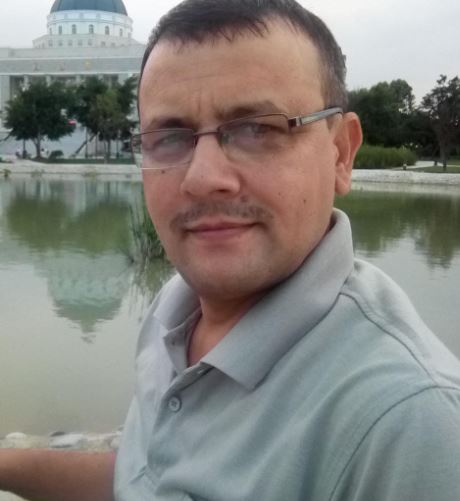
By Ritu Raj Subedi (KATHMANDU, 11 September 2019) – Indian and Pakistan have sought Nepal’s support to deal with the Kashmir crisis with their own version of solutions as the two nuclear powers are ramping up their diplomatic offensive at regional and global level.
Nepal is currently the chair of South Asian Association for Regional Cooperation (SAARC), a grouping of South Asia’s eight nations. The SAARC is now virtually in coma because of the recurrent Pakistan-India conflict, particularly on Kashmir which they inherited from the British colonial rule.
Nonetheless, Nepal has apparently declined to side with either of its friend over Kashmir for which both the rivals fought at least three wars in the past. Upholding neutral foreign policy, Nepal has refrained itself from coming to defence of one friendly country against another over the sensitive matters.
Nepal treads fine line
Moreover, Nepal government is treading a fine line to avoid possible geopolitical fallouts despite the mounting pressure that it must make its stand clear over Kashmir based on the spirit of Non-Alignment Movement and the UN Charter.
Nepal’s Foreign Minister Pradeep Gyawali has stated that his government is closely watching developments in Jammu and Kashmir. “We always stand for peace and stability in the neighbourhood and the region. Nepal believes peaceful solution to any problem, and dialogue is the only way to resolve the misunderstanding between the neighbouring countries or South Asian ones,” he added.
Nepal has termed the Kashmir issue as ‘bilateral’ one but India is seemingly not satisfied with Nepal’s position on it. It has pressed Nepal to call it an ‘internal affairs’ of India and throw support behind its diplomatic push.
During his two-day recent visit to Nepal in the third week of August, Indian External Minister S. Jaishankar asked Nepal government to extend the latter’s diplomatic collaboration in handling the Kashmir issue. Nepal’s communist regime refused to toe the Indian line as the Himalayan nation is turning into a new battleground for global players to assert their geopolitical clout in the region.
A few hours after Jaishankar left Kathmandu, Pakistani Foreign Minister Makhdoom Shah Mahmood Qureshi telephoned his Nepali counterpart Gyawali and requested Nepal to play its role as SAARC chair for peace and stability in the region and impress India to ease the suffering of the people of ‘Indian Occupied Jammu and Kashmir’.
Qureshi has also expressed his desire to visit Nepal for the same purpose.
Pakistan intends that Nepal would speak on Kashmir in the spirit of the UN Security Council’s resolution, adopted on Jan 1, 1948, that a plebiscite will be held to decide the fate of Kashmiri people.
Known as the flashpoint of South Asia, Jammu and Kashmir is now crippled by security lockdown and media restriction imposed by the Bharatiya Janata Party (BJP)-led government. Early this August, Indian federal government had stripped the volatile Indian state of its special status and bifurcated it into two union territories – Jammu and Kashmir – and Ladakh – by abrogating Articles 370 and 35A of constitution.
The Indian government is telling the international community that Kashmir is its ‘internal affairs’ and no country should interfere in it but Pakistan has accused the former of seriously violating Kashmiri people’s rights to self-determination and special status guaranteed by the constitution.
A democratic and credible solution to the long-standing Kashmir tension is the key to resuming the stalled SAARC process. Though it is not in a position to mediate between India and Pakistan, it can offer good offices to the both antagonistic neighbors to open a meaningful dialogue and negotiations. It’d better pursue a Track II diplomacy wherein the experts and scholars from both the nations are invited to brainstorm practical ideas and suggestions for the resolution of the crisis.
China’s help to Pakistan
Meanwhile, China, known as Pakistan’s ‘all-weather friend,’ has lent support to take up the Kashmir issue to the UN Security Council. Although the Council members failed to come up with a statement on the issue in their over 90-minute discussion, Pakistan seemed satisfied for it succeeded to internationalise the issue.
Pakistan has again written letter to the various UN officials, accusing that India had violated international human rights laws in Kashmir.
On the other hand, China has opposed India’s inclusion of the Chinese territory in the western sector of the China-India boundary into its administrative jurisdiction. As a Security Council member and Asia’s superpower, China needs to leverage its diplomatic strength for the peaceful resolution to the Kashmir trade-off for the stability, peace and development in South and Central Asia.
Indian and Pakistan foreign ministers also visited Beijing and urged the Chinese government to cooperate with them for ending the new Kashmir-stand-off. China has asked both its neighbors to refrain themselves from any unilateral actions which worsen the situation.
The failure to solve this stalemate risks triggering Hindu-Muslim polarisation and conflict in South Asia and beyond. The pro-Hindu Narendra Modi-led government is hell-bent on destroying secular order and values spelt out in the Indian constitution. Emboldened by sweeping electoral mandate, and deflated and demoralised opposition, the Modi administration has taken unilateral moves which have drawn flurry of criticisms from various rights groups, minorities and intellectuals at home and abroad.
(Subedi a the Deputy Executive Editor of The Rising Nepal, Nepal’s first English broadsheet)


